U18 AAA team to host Kamloops this weekend at Citizen Field in front of what is hoped to be a large crowd
By Ted Clarke
Prince George Citizen
Two years ago, the Prince George Knights were kings of the province.
The U-15 bantam team thrived on home cooking all week in the provincial double-A tournament at Nechako Park and earned the B.C. Minor Baseball Association crown. The U-18 Knights also brought home the banner as provincial champs from their tournament in Whalley.
Players from both teams would have loved a chance to defend their championships the following year but the pandemic prevented that, and the season was cancelled before the opening pitch was tossed.
That hardball famine is about to end and on Tuesday night the boys of summer will finally get a chance to play a meaningful game again.
“We haven’t played since the pandemic hit, but we’ve been practicing ever since then,” said Knights manager Jody Hannon. “We have been playing some exhibition games against men’s teams but that’s it.”
They’re about to be fed to the Dogs – the Kamloops River Dogs – in the first of a three-game series at Citizen Field Tuesday at 7 p.m.
The Knights’ 14-player roster includes several key components of the bantam team that won the B.C. Minor title and got to the final of the Baseball BC championship in Chilliwack that same 2019 season.
Most of that high-octane Knight team in 2019 who were bantam-aged (under 15) at the time have moved up to the midget ranks (under-18) and they’ve joined the remaining talent from that powerful U-18 team that ruled B.C. two years ago.
It starts with slugger Preston Weightman, the provincial MVP two years ago, and the list of veterans continues with Jacob Fillion. Zach Fillion, Jacob Ross, Parker McBurnie, Logan Dreher, Chase Martin and James Yando. Tyson Ramsay, Jarron Fillion, Kobe Fulton, Brody LaFavor, Dillon Neufeld and Riley Zummack. Jake and Zach Fillion, Ross and Zummack were on the U-18 team Hannon coached to the B.C. Minor title two years ago.
Collectively, they’re good enough to be in the provincial U-18 triple-A mix this season.
“We’re going to be pretty strong,” said Hannon. “It’s our first season back in triple-A (for a Prince George team) since I don’t even know when. They’re a real tight-knit group and they’ve come together and have good chemistry. It’s definitely one of the stronger teams that I’ve coached.
“I think we’re going to be one of the top teams in the province and I have a lot of confidence going into the game (on Tuesday). Honestly, we’re strong all the way around the ball. We have good pitching (10 of the 14 players pitch). We hit well for contact and hit well for power. We have a lot of fast guys and we’re good defensively. It’ll be tough getting up t game speed after a year-and-a-half off, but I believe in the guys and I think we’ll have a good chance to go for my sixth title here.”
The Knights coaches are Cole Laviolette, Tommy Kreitz and Scott Walters. They started practicing with the players indoors in February at the Northern Sport Centre.
The River Dogs, who last sent a team to Prince George in 2016, have the benefit of playing teams from Kelowna and the Lower Mainland this summer in the college prep league. The Knights are of similar calibre, but Hannon said they won’t be part of the league due to the fact the Lower Manland teams did not want to have to travel to Prince George.
The River Dogs and Knights meet again in a Wednesday doubleheader at 9 a.m. and noon at Citizen Field. Hannon is hoping people will turn out in droves to watch them in action this week.
“We want to pack the stands, there’s no restriction for us to fill the stadium,” said Hannon. “We want to bring baseball back in a big way because the boys got robbed last year. They’re excited and it’s going to be college-calibre games.”
The Knights will be on the road several times this summer with one tournament in Kamloops and three om Kelowna, including the Final Five championship in August. Prince George has an automatic berth and will face the top four regular-season finishers.
FLY BALLS: The U-18 Knights are part of the five-team Domino’s Pizza Prince George Senior Baseball Association, which opens its season on Wednesday at Citizen Field. Each team plays a 12-game schedule which starts with the D.O.B. Contracting Gladiators taking on the Queensawy Auto World Mariners Wednesday evening. On Thursday, the Inland Control & Services Tigers face the Knights. The JRJ Contracting Orioles will have to wait until Friday to play their opener against the Mariners. All games start at 7 p.m…. Hannon and current double-A pro infielder Jared Young were teammates on the powerhouse Knights team that won the B.C. Minor double-A midget championship in 2012 at Citizen Field. Young now plays in the Double-A South League for the Tennessee Smokies.
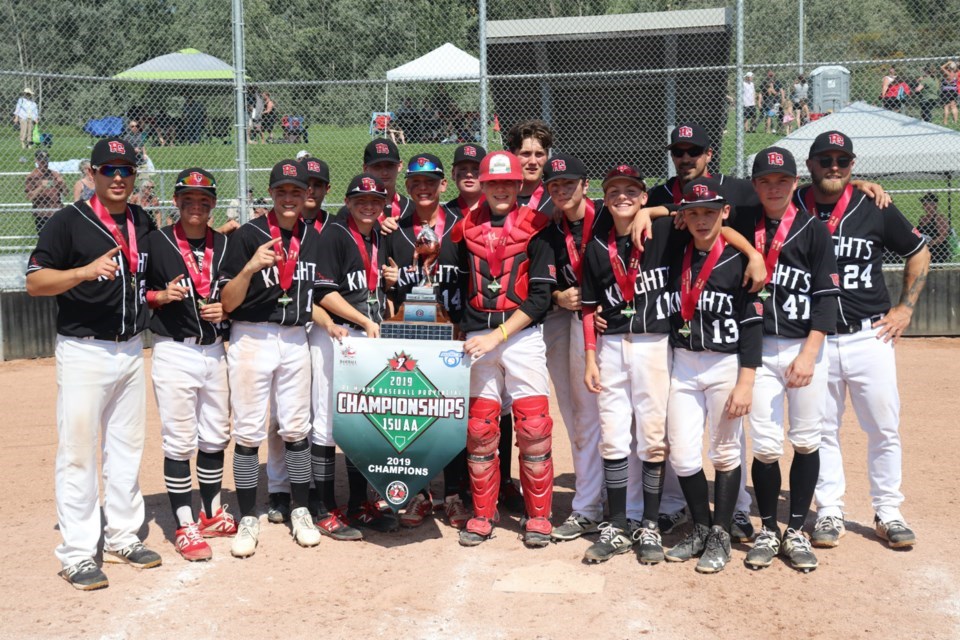




 Summer Collegiate2 weeks ago
Summer Collegiate2 weeks ago
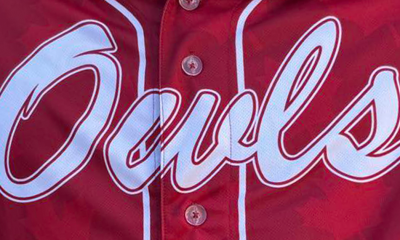

 Summer Collegiate4 days ago
Summer Collegiate4 days ago
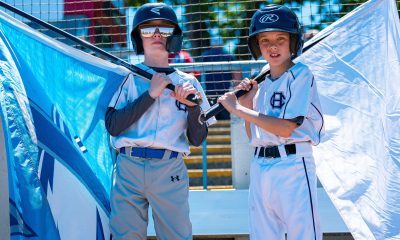

 Summer Collegiate2 weeks ago
Summer Collegiate2 weeks ago
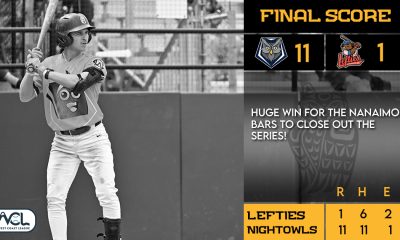

 Summer Collegiate1 week ago
Summer Collegiate1 week ago
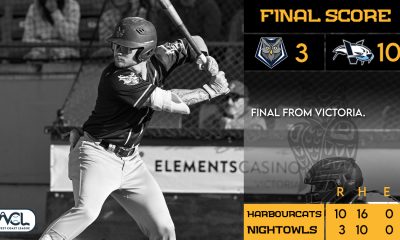

 Summer Collegiate2 weeks ago
Summer Collegiate2 weeks ago


 Summer Collegiate2 weeks ago
Summer Collegiate2 weeks ago
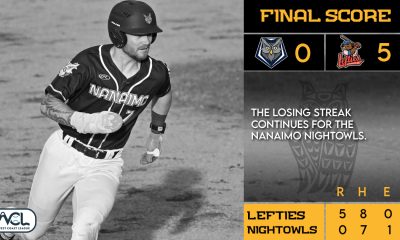

 Summer Collegiate1 week ago
Summer Collegiate1 week ago







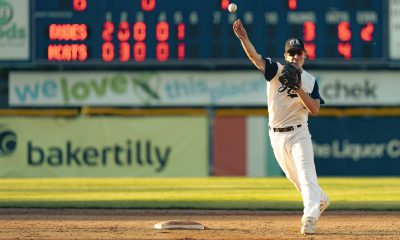

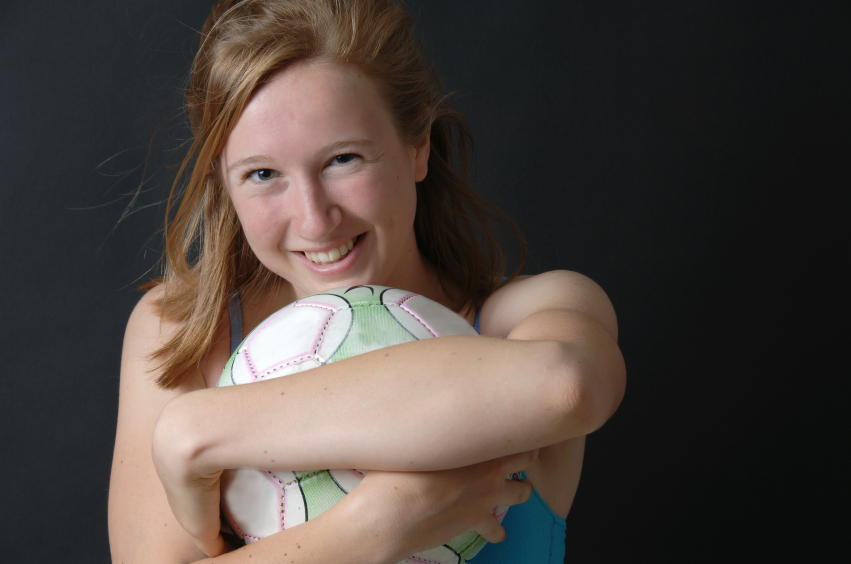


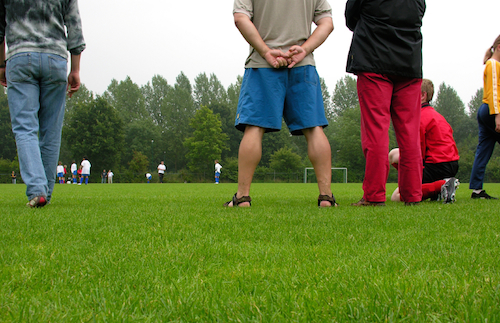









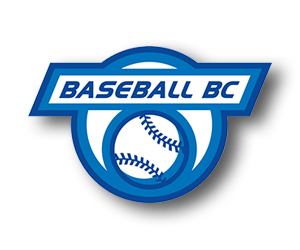
You must be logged in to post a comment Login